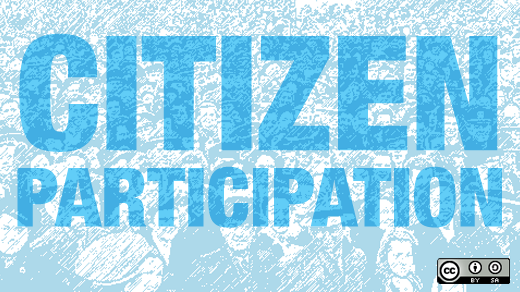The Canadian Radio-television and Telecommunications Commission’s hearing on basic telecommunications services launched earlier this week with the Commission continuing its effort to engage the public with an open discussion forum that will allow for comments to placed on the record (comments outside of the CRTC universe – op-eds, blog posts or social media comments do not count). While CRTC chair Jean-Pierre Blais has emphasized his interest in hearing from Canadians, the recent experience of Concordia University professor Fenwick McKelvey highlights how more work is needed to remove barriers that may inhibit independent experts from participating in the process.
McKelvey told me he was very happy to participate, yet consider the barriers faced by academics or other independent experts seeking to contribute to the CRTC process. First, McKelvey (along with other academic intervenors) faced questions from Telus about their background, expertise, and funding. Telus demanded that each answer the following questions:
Did you receive any funding to support your intervention? If so, from whom?
Do you have a position at a university, or elsewhere, or are you in a centre, institute, or similar organization, that supported your intervention? If so, please describe your position at the centre, institute, or similar organization and identify the source(s) of funding.
Please describe any other entities with which you are or have been affiliated which have interests or have intervened before the CRTC or Industry Canada with respect to telecommunications policy and regulation issues.
Please provide a current copy of your curriculum vitae for the public record.
When the academics refused to disclose the information, Telus responded with lengthy arguments on why they should be required to provide all of this background information despite the fact that it has nothing to do with the substance of the hearing. Those demands alone might be enough for some to avoid the CRTC process.
While the demands for background checks came from Telus, the CRTC commissioners did themselves no favours in the first day of the hearing. Coming at the end of a long day, McKelvey brought two experts to discuss Internet measurement along with students to witness the proceedings. As the discussion became increasingly technical, Commissioner Molnar stated:
I have just one last question and I think this might be an undertaking, because you rapidly get beyond my technical capacity to understand what you’re saying, so in writing is easier for me.
After Molnar explained the legally required undertaking, McKelvey responded that he had concerns about timing, leading to the following exchange:
1880 MR. McELVEY …I would like to discuss with them whether it’s feasible within the May 5th timeline and am I allowed to say that I will get back to you on whether that’s feasible?
1881 COMMISSIONER MOLNAR: I wouldn’t think so.
— (LAUGHTER)
1882 MR. McELVEY: I don’t — I mean it’s my first time. I really do mean it as a genuine —
1883 THE CHAIRPERSON: Well I appreciate that, that it’s your first time, but normally people come ready for the possibility of having to answer within that timeline.
CRTC veterans and commissioners are likely to read the exchange and shrug their shoulders. Those are the rules – if you want to participate, you can find yourself subject to legally mandated undertakings that must be completed within tight time frames. While that may work well for government institutions and large companies with ample resources devoted specifically to these issues, for the average Canadian seeking to have their voice heard, this is likely to be viewed as a significant barrier to participation.








Voter suppression, anyone?
I was under the impression that these rules were in fact designed with the intention of letting industry and crtc have these discussions without public input.
and buried init’s report will bre a TPP
review…
sounds strangely familiar, don’t it?
Somewhat off-topic; Any comments on BlackBerry/RIM having handed over their global master keys to the RCMP?
(http://www.huffingtonpost.ca/2016/04/14/blackberry-decryption-key-rcp_n_9692680.html)
Yeah, I’m trying to find answers to that one as well.
One disturbing statement from BlackBerry CEO John Chen included:
“…our privacy commitment does not extend to criminals.”
Such a disclaimer blatantly announces that Blackberry is already making the judgement on who is a “criminal”, and letting law enforcement dig into the communications of all the people included in that judgement, and of all the people they were communicating with.
Chen also makes a very disingenuous snipe at Apple…
“We are indeed in a dark place when companies put their reputations above the greater good.”
Any Blackberry user of sound mind, hearing either of those statements, should be turfing their Blackberry.
Link to the transcripts seems to be incorrect, FYI. Should instead be the following, presuming I identified the correct discussion:
http://www.crtc.gc.ca/eng/transcripts/2016/tt0411.htm